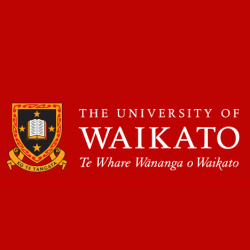
PROJECT
The Development of Massive Open Online Courses (MOOCs) in New Zealand
Supporting learners,
Learner access and pathways,
Distance and flexible learning,
Assessment
Status
Completed: 9 June 2014
Project Details
A one-year project, undertaken by the University of Waikato, to report on the current situation regarding the development of massive open online courses (MOOCs) in the New Zealand tertiary education sector.
Aims:
The main aims of the project were to:
- analyse the current position of New Zealand's tertiary education organisations in relation to MOOCs
- undertake primary research on the issues confronting the whole sector
- consider international factors that may impinge on New Zealand learners (and the sector)
- examine whether tertiary students could benefit (in participation or pedagogical terms) from MOOC models
- explore current work and future potential for MOOCs in New Zealand.
Methodology:
The project used a qualitative research methodology involving:
- a brief literature search, and an analysis of daily ‘MOOC’ press articles retrieved through Google Alerts
- interviews, carried out face to face or by telephone, with those involved in MOOCs as staff, senior leaders and developers in universities and polytechnics, union and student leaders and officials from government agencies who have an interest in the field.
The research questions investigated were:
- What is the state of play in MOOC development in New Zealand?
- What are the factors that influence and affect such development?
Team

Professor Michael A Peters
Project Leader
The University of Waikato
Prof Tina Besley
The University of WaikatoDr Liz Gordon
Pukeko Research LtdStatus
Funding
$20,000.00 (excl GST)
$10,000.00
Regional Hub Project Fund
$10,000.00
Wilf Malcolm Institute of Educational Research (WMIER), University of Waikato
Key Findings
The findings are identified under five key themes:
- The potential disruption to existing models of tertiary education: The biggest threat to the tertiary system from MOOCs lies in the relative expense and inflexibility of the place-based learning model. With a marginal cost of virtually nil (after development), MOOCs are a far more responsive and efficient way to offer courses.
- The concept of openness and open learning: There are a variety of course-related challenges to open learning and the effective use of technology. Issues such as cost, resources, technology, the ability to adapt pedagogy to the online mode and the problem of knowing your audience are only a few. At the moment, with little collaboration, each tertiary organisation is having to re-invent its own approaches to these issues. It appears from the outside that more networking between organisations would facilitate better outcomes.
- The ability of the Internet to deliver a technological revolution in learning: The role of MOOC platforms in providing, in some instances, the technological resources needed to produce MOOCs was discussed. One university is beginning to develop desktop technology by which all staff can make their own online content at their desk. One of the xMOOC universities developed and produced its own courses and acknowledges some additional cost in staff and advertising. The other xMOOC organisation is producing its MOOCs in Australia, at a dedicated production studio.
- The political economy of higher education: A MOOC from a high prestige university cannot offer the same experience as studying at such a place, and the market should look for quality, not prestige, in MOOCs. Most participants agreed that place-based learning and MOOCs could co-exist and had the potential to bring down the cost of higher education.
- Questions around teaching and learning: The potential to offer free courses is not seen as a major factor among participants, although many noted the potential of MOOCs to lower the cost and improve the quality of tertiary courses and relieve the fiscal pressures on the sector. Some participants noted the value in offering free tertiary courses to underserved groups such as older persons, those wanting adult and community education opportunities, those in provincial areas and perhaps those wanting vocational education options.
Key Recommendations
The five key themes discussed under findings are recommended for further investigation in the future:
- The potential disruption to existing models of tertiary education.
- The concept of openness and open learning.
- The ability of the Internet to deliver a technological revolution in learning.
- The political economy of higher education.
- Questions around teaching and learning.
A research report prepared by Liz Gordon, Michael Peters and Tina Besley.
(PDF, 1.5 MB,56-pages).
- 20 June 2014
A research report summary prepared by Liz Gordon, Michael Peters and Tina Besley.
(PDF, 231 KB, 8-pages).
- 20 June 2014